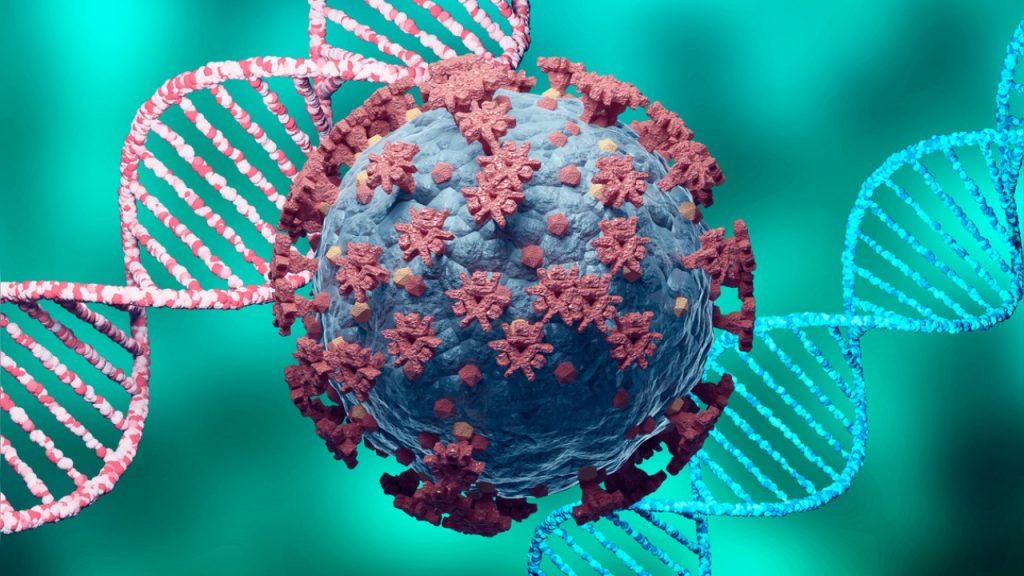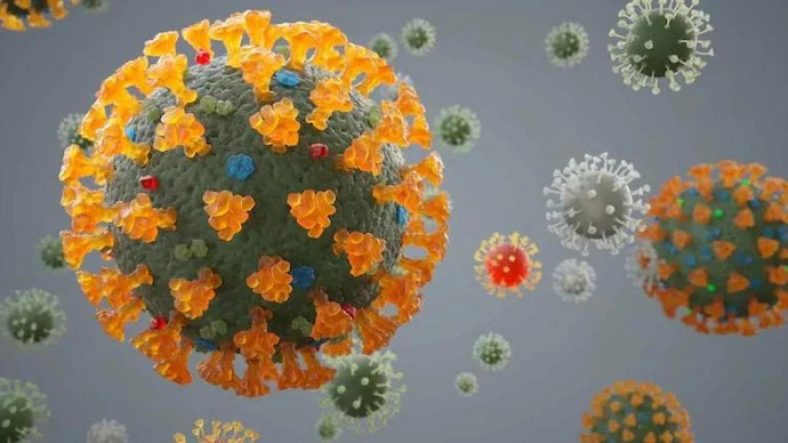New COVID Variant: Symptoms, Vaccines, and More
The ever-evolving landscape of the COVID-19 pandemic brings forth new challenges with each passing day. The emergence of new variants keeps us on our toes, prompting questions about vaccines, symptoms, and the overall impact on our health. In this article, we dive deep into the latest developments surrounding the new COVID variant. We’ll explore its symptoms, the existence of a new vaccine, and the impact on unusual health issues, such as dry mouth, neck pain, ear and jaw pain on one side, and dental discomfort. Let’s navigate through this evolving terrain and stay informed together.
Table of Contents
New COVID-19 Vaccine
One of the first questions that often arises when a new variant surfaces is whether there’s a specific vaccine to address it. As of the latest updates, researchers and healthcare professionals are working diligently to adapt existing vaccines to the new variant. These updated vaccines aim to provide enhanced protection against the latest strain while maintaining the effectiveness of earlier vaccines.
Understanding the New COVID Variant
Emerging variants are a natural part of viruses’ life cycles. The new COVID variant, while understandably concerning, is a result of the virus’s ability to adapt over time. Variants can impact how the virus spreads and responds to treatment, making it essential to monitor them closely. This variant’s emergence underscores the significance of vaccination and preventive measures to curb its spread.

New COVID Variant Symptoms
The symptoms associated with the new COVID variant may vary from those of earlier strains. Common symptoms still include fever, cough, and shortness of breath, but the variant may introduce variations. It’s crucial to be aware of these differences and seek medical advice promptly if you experience symptoms such as extreme fatigue, persistent cough, or severe breathing difficulties.
Latest COVID Variant Symptoms
The symptoms of the new COVID variant are similar to the symptoms of other Omicron variants, including:
- Runny nose
- Sore throat
- Sneezing
- Fatigue
- Muscle aches
- Headache
- Fever
- Cough
- Loss of taste or smell
- Diarrhea
Unusual Symptoms
In addition to the well-known symptoms, some individuals have reported unusual symptoms related to COVID-19, including dry mouth, neck pain, ear and jaw pain on one side, and dental discomfort. While not universally associated with the virus, these symptoms have been linked to COVID in some cases. If you experience these symptoms along with other common signs of the virus, consider getting tested and seeking medical advice.
The Impact of COVID on Appetite
COVID-19 can affect your appetite and sense of taste. Loss of taste and smell is a known symptom of the virus. Some people have reported increased appetite, while others have noted a reduced desire to eat. It’s essential to listen to your body and maintain a balanced diet during and after COVID.
How can I protect myself from the new COVID variant?
The best way to protect yourself from the new COVID variant is to get vaccinated and boosted. Vaccination significantly reduces your risk of becoming seriously ill, hospitalized, and dying from COVID-19.
In addition to vaccination, you can also protect yourself from the new COVID variant by:
- Wearing a mask in public indoor settings
- Avoiding crowded places
- Practicing social distancing
- Washing your hands frequently
Conclusion
In a world where change is the only constant, staying informed and adaptable is our best defense. The new COVID variant is a testament to the virus’s ability to adapt, but it’s also a reminder of our ability to respond. By keeping a watchful eye on symptoms, seeking vaccination, and practicing precautionary measures, we can collectively navigate these uncertain times.
Additional Resources
For more in-depth information on COVID-19 variants and related topics, refer to the following resources:
Please note that this is a sample article, and you can further enhance it with the latest information and specific details about the new COVID variant as they become available.
FAQs About New Covid Variant and Its Symptoms
Q: What is the new COVID variant?
A: The new COVID variant is a subvariant of Omicron called EG.5, also known as Eris. It was first detected in South Africa in June 2023 and has since spread to several other countries.
Q: Is the new COVID variant more transmissible than other variants?
A: Yes, the new COVID variant is more transmissible than other variants, including BA.5. This means that it is easier for people to become infected with the new variant.
Q: Is the new COVID variant more deadly than other variants?
A: It is not yet known whether the new COVID variant is more severe than other variants. However, it is important to note that any COVID-19 infection can cause serious illness, hospitalization, and death, especially in people who are not vaccinated and boosted.
Q: What should I do if I think I have the new COVID variant?
A: If you have any of the symptoms of COVID-19, you should get tested as soon as possible. If you test positive, you should isolate yourself from others and follow the instructions of your healthcare provider.
Q: Are there any treatments available for the new COVID variant?
A: Yes, there are several treatments available for COVID-19, including antiviral medications and monoclonal antibodies. These treatments can be very effective in reducing the severity of COVID-19, especially if they are started early.
Q: Who is at high risk for serious illness from the new COVID variant?
A: People who are at high risk for serious illness from COVID-19 include: Older adults
People with underlying medical conditions, such as heart disease, lung disease, diabetes, or cancer
People who are immunocompromised
People who are not vaccinated and boosted.
Q: When will the new COVID variant go away?
A: It is not known when the new COVID variant will go away. However, as more people get vaccinated and boosted, and as we continue to take preventive measures, we can help slow the spread of the virus and reduce the impact of new variants.
Q: What is the latest news on the new COVID variant?
A: Scientists are continuing to study the new COVID variant to learn more about its transmissibility, severity, and impact on vaccines and treatments. The World Health Organization (WHO) is also monitoring the new variant and will provide updates as needed.
Dry mouth after COVID-19?
Yes, dry mouth, also known as xerostomia, is a common symptom of COVID-19. It can be caused by the virus itself, dehydration, or medication side effects. A dry mouth usually resolves on its own after a few days or weeks, but there are things you can do to relieve symptoms, such as drinking plenty of fluids, chewing sugarless gum, and using a humidifier.
COVID neck pain?
Yes, neck pain is a possible symptom of COVID-19. It is thought to be caused by inflammation of the muscles and tissues in the neck. COVID neck pain is usually not severe and resolves on its own after a few days. However, if your neck pain is severe or does not improve after a few days, you should see a doctor.
Ear and jaw pain on one side Because of COVID-19?
Yes, ear and jaw pain on one side can be a symptom of COVID-19, especially if it is accompanied by other symptoms such as fever, cough, and sore throat. COVID ear and jaw pain is thought to be caused by inflammation of the nerves and muscles in the head and neck. It is usually not severe and resolves on its own after a few days. However, if your ear and jaw pain is severe or does not improve after a few days, you should see a doctor.
Does COVID-19 make your teeth hurt?
Yes, COVID-19 can cause tooth pain. This is thought to be due to inflammation of the gums and nerves in the mouth. COVID tooth pain is usually not severe and resolves on its own after a few days. However, if your tooth pain is severe or does not improve after a few days, you should see a dentist.
Does COVID make you hungry?
Some people with COVID-19 report feeling hungrier than usual. This is thought to be due to inflammation, which can increase the body’s need for energy. However, others with COVID-19 may experience a loss of appetite. It is important to listen to your body and eat when you are hungry. Be sure to choose healthy foods and drinks to help your body recover.
Please note that this information is based on the best available data as of October 2023. The situation with COVID-19 is constantly evolving, so it is important to stay informed and follow the latest guidance from public health officials.

